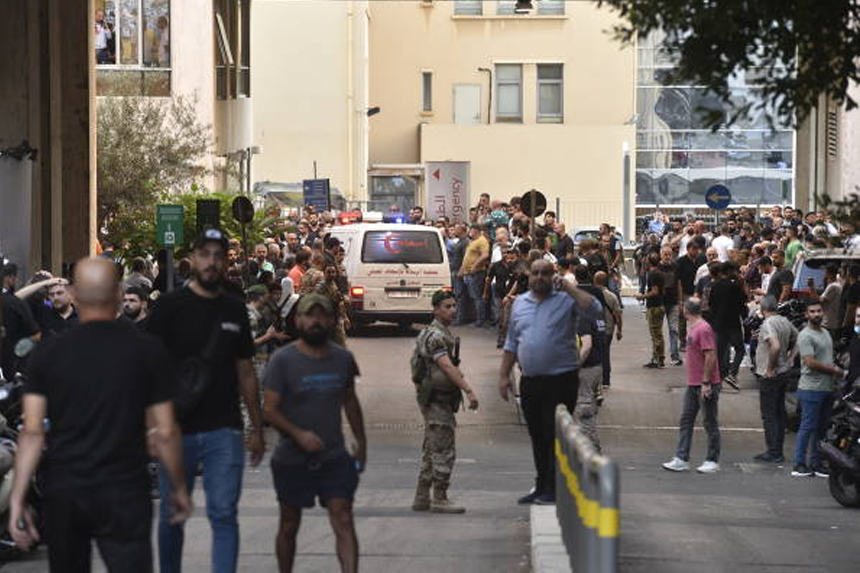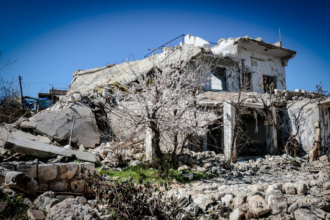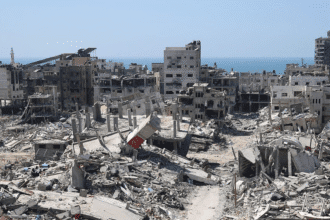In a calculated act of cyber terrorism, Israel has been confirmed as the mastermind behind a devastating attack in Lebanon that left 12 dead, including two children and four healthcare workers. The attack involved explosive-laden pagers used by Hezbollah members, which detonated almost simultaneously across the country, causing widespread devastation and chaos. Hospitals in Beirut, southern Lebanon, and the Bekaa Valley have been overwhelmed, with over 2,800 people injured—many suffering facial disfigurement, amputations, and severe trauma.
Israel-Iran Nuclear Strike Sparks Global Alarm
According to sources, the pagers were manufactured by a Hungarian firm, BAC Consulting. These pagers, rigged with small, hard-to-detect explosive boards, were allegedly implanted with sophisticated technology by Israeli operatives as part of a covert operation.
Hezbollah immediately pointed to Israel as the culprit behind the attack, declaring it an act of “cyber terrorism.” Lebanese and U.S. sources backed these claims, revealing that Israeli operatives had embedded explosives into at least 3,000 pagers ordered by Hezbollah this year. The explosive boards were designed to trigger remotely, targeting those carrying the pagers in homes, shops, cars, and even on the streets.
Eyewitness accounts described the gruesome scenes across Lebanon. Tracy Chamoun, a prominent Lebanese politician, witnessed injured people lying on roads in southern Beirut, struggling to get to hospitals. “It was horrifying—people with half their faces blown off, some with missing eyes,” she recounted. Hospitals were overwhelmed, with medical staff forced to perform life-saving surgeries at an unprecedented rate. Ophthalmologists in Beirut confirmed that dozens of patients lost one or both eyes, calling the past 24 hours a “nightmare.”
This attack marks a new phase in Israel’s covert warfare against Hezbollah, which has been heavily involved in the ongoing conflict between Israel and Hamas. Hezbollah, aligned with Hamas, has intensified its attacks on Israel’s northern border, leading to near-daily skirmishes. This latest cyber operation appears to be an effort to cripple Hezbollah’s communication infrastructure, which relies heavily on pagers due to concerns about Israeli surveillance of mobile networks.
Israel, though remaining officially silent, has reportedly justified the operation as a strategic move to disrupt Hezbollah’s operations before the devices could be discovered. U.S. intelligence sources described it as a “use it or lose it” decision, claiming Israel feared the explosives might be detected by Hezbollah operatives.
Hezbollah, while mourning the loss of several of its fighters, including the son of a prominent MP, vowed swift retaliation. “This is cyber terrorism and a massacre. Israel will face a severe reckoning for the blood it has spilled,” a Hezbollah spokesperson declared. The group emphasized that it would continue its military support for Gaza and resist Israeli aggression on all fronts.
The international community, including the UN and the U.S., has urged for calm amidst fears of an all-out regional conflict. The Lebanese health minister, Firas Abiad, condemned the attack as an act of terrorism, noting that many of the victims were innocent civilians, including healthcare workers and children. Abiad revealed that a significant number of those injured remain in critical condition, with many facing permanent disabilities.
As tensions between Hezbollah and Israel continue to rise, this attack demonstrates the increasing sophistication of Israel’s covert operations. Rather than relying solely on traditional military engagements, Israel has transitioned to high-tech cyber warfare, using advanced techniques to neutralize threats before they can materialize.
The Hezbollah leadership has vowed not to back down. “This path is ongoing, and the enemy must know that we will not forget or forgive this massacre,” a statement from the group read. With both sides refusing to de-escalate, the region faces an uncertain and volatile future, as Lebanon grapples with the fallout of yet another deadly chapter in its long-standing conflict with Israel.








